The connection of the Beatles with Indian music it may have started before they were even born. The documentary The Beatles and India (Theatrical release April 1), traces that impact back to George Harrison's mother, when she was still pregnant and non-stop listening to Indian music, something not so common, back in the 1940s.
Perhaps for this reason, on his first trip to the Indian subcontinent, in 1966, Harrison lived u Such a deep connection with the sounds, the smells, the way of thinking. Or maybe his connection came from their previous lives. Something he seemed to believe in.
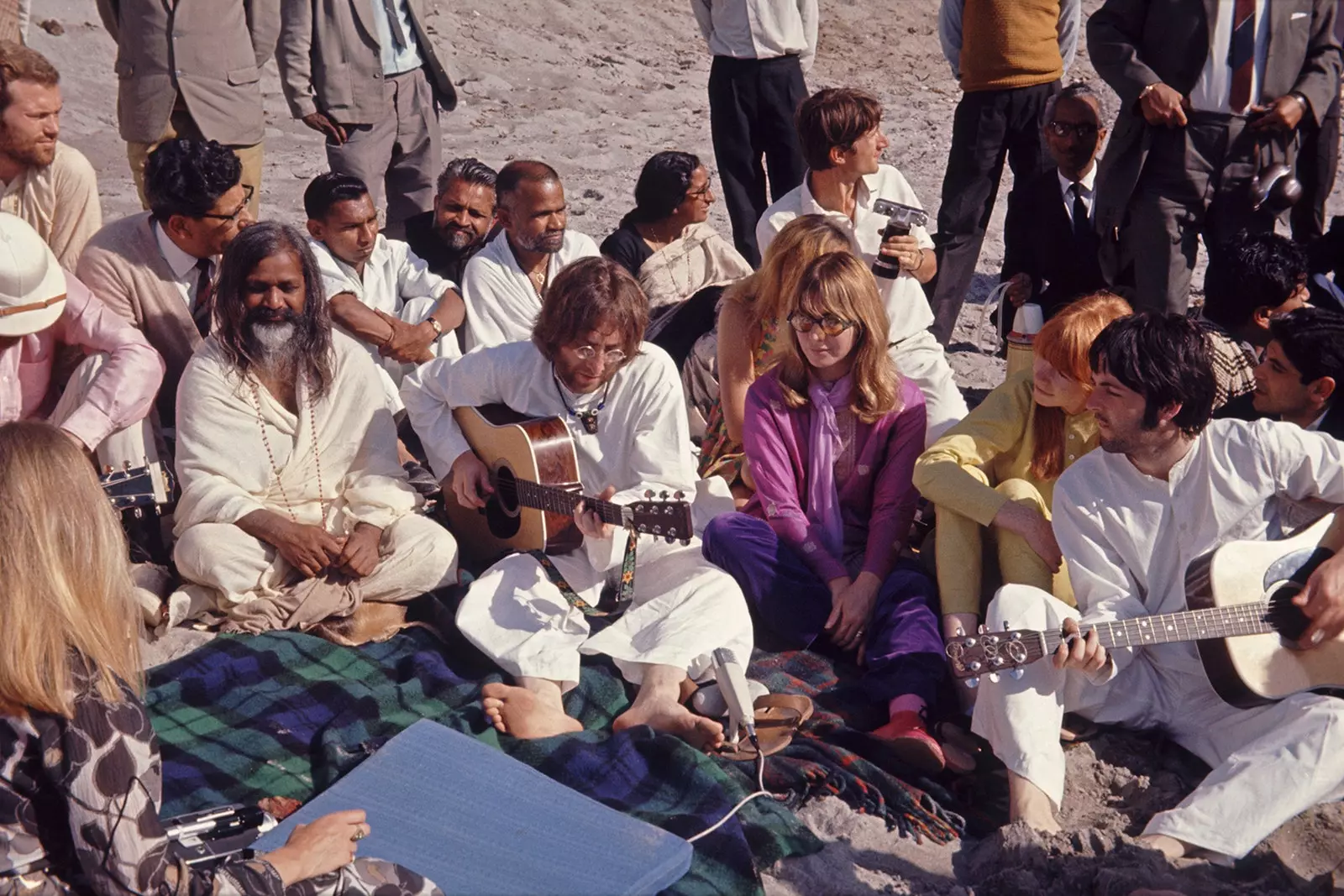
John and Paul singing for the Maharishi.
In any case, the consequences of that first trip they made as a group, harassed by thousands of fans, as was the case in any other country, it opened up a new world for them that ended up impacting their creativity and their lives forever. In that first indian tour, they already left there with sitars, the traditional indian stringed instrument and with contacts of the most recognized musicians, in particular, they got a name: Ravi Shanker.
On his return to London, George Harrison and Paul McCartney they were fortunate to coincide with the Indian musician and, above all, Harrison made the most of his lessons.
The documentary, directed by the Indian journalist and Beatlemaniac Ajoy Bose (describing himself as a teenage rebel when the group first arrived in his country), he elaborates on the reasons why the Liverpoolers were able to become absorbed in Indian spirituality. It was the 60's the hippie influence continues, LSD, of which they spoke openly, queen. all that psychedelic vibe it was reflected in everything they did or wanted to do. And so, the four of them with their partners from then ended on a spiritual retreat welcomed by the great Maharishi transcendental meditation guru.
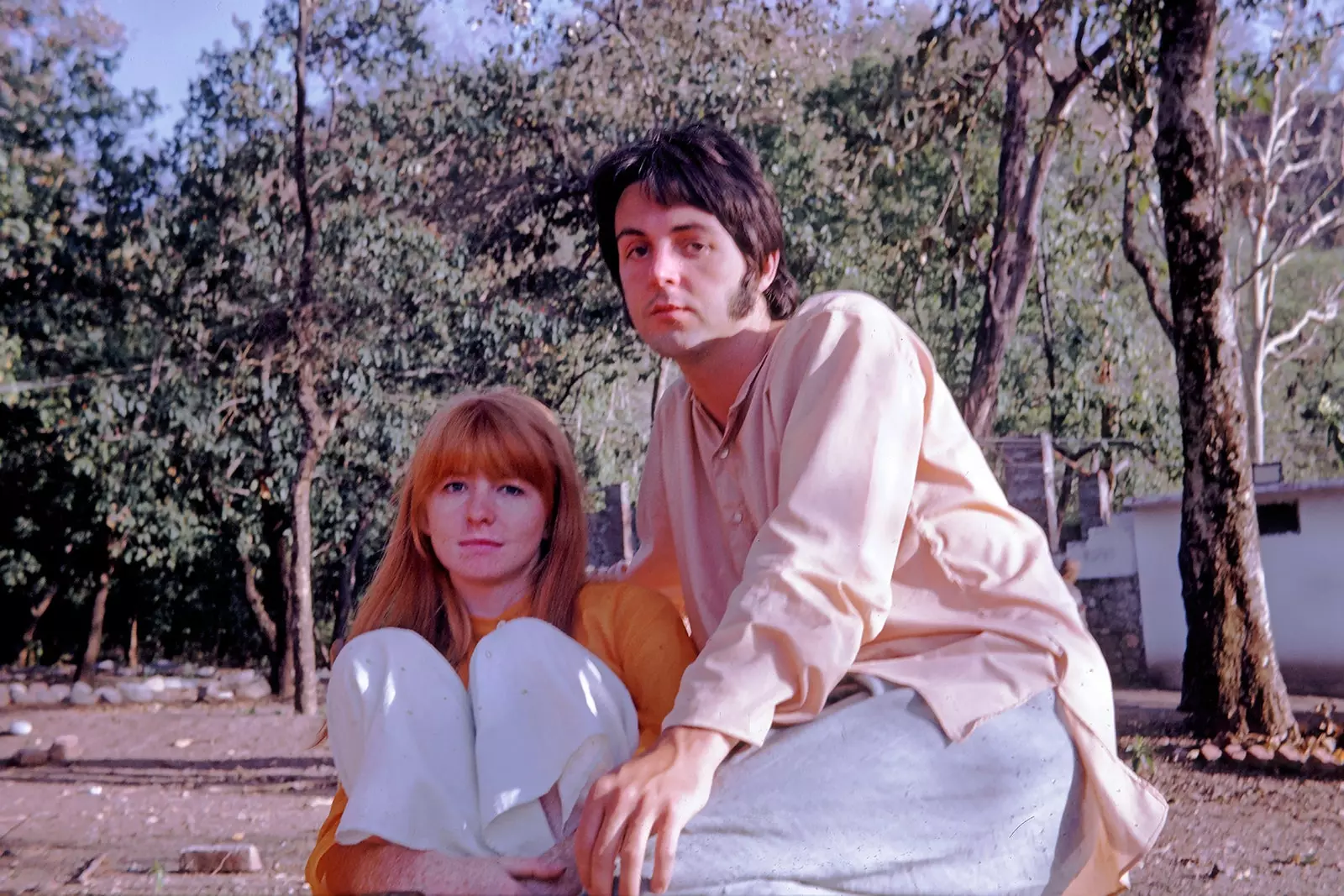
Paul McCartney and his girlfriend at the time, Jane Asher.
John, Paul, George and Ringo went there in February 1968. A withdrawal without a return date. Ringo only lasted a few days, Paul was more than a month, but John and George lived for months. The beginning of his retirement in the rishikesh ashram of the famous yogi was tremendously creative for the band. There, on the roof or on the stairs of their ascetic bungalows, they made up all the white album
Dear Prudence, for example, was dedicated to Mia Farrow's sister, Prudence She had met them at the ashram, but she was taking her meditation much more seriously and wouldn't leave her room for hours. In Across the Universe the key words of that sacred place are heard: Jay Guru deva. The password to enter the Maharishi's temple.
In their time there, moreover, they coincided with Mike Love, from Beach Boys, or Donovan, and all that could go beyond his music. As the basis of meditation and the repetition of his mantras that would explain some of the structures of his lyrics.
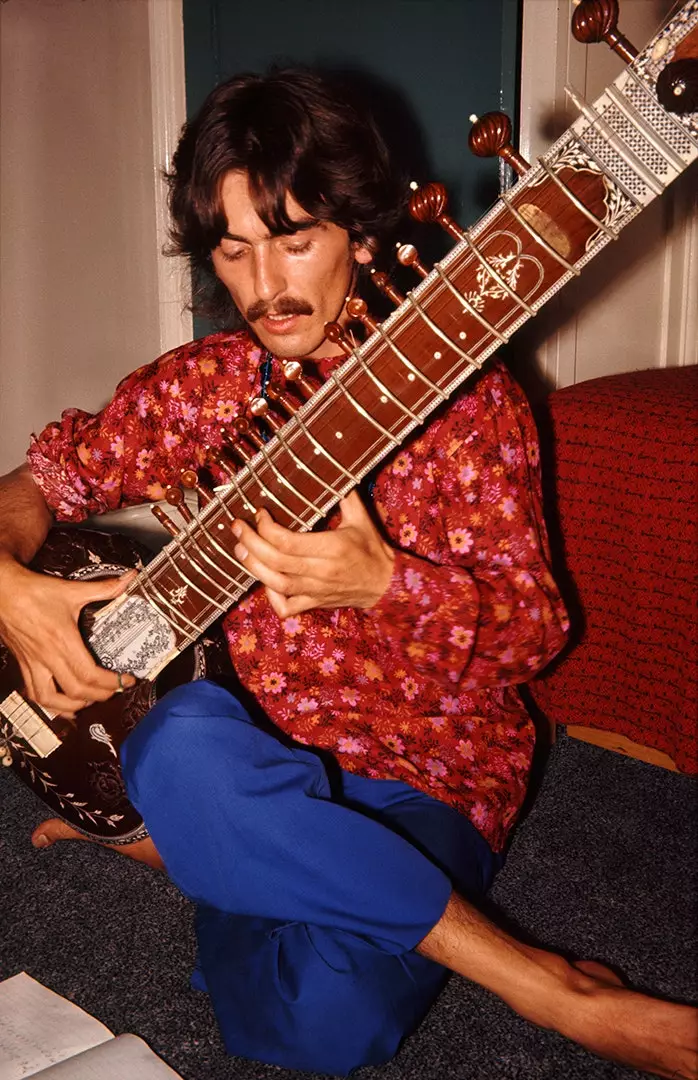
George Harrison playing the sitar.
As it explains Patty Boyd, Harrison's wife then, he was the most convinced of being there, she was looking for an answer to the question that tormented him: why he was famous, why he, a kid from Liverpool, destined for a humble path, had ended up being this famous. Or as he explains in one of the unpublished interviews revealed in the documentary: "The only reason to live is to attain the full knowledge that leads to happiness."
MAHARISHI'S MISTAKE
The Beatles and India also reveals the investigation of the ashram and its guru by the CIA and the KGB . Both agencies convinced that the place was a school for spies. It was around this time that Maharishi's ambitions ran a little wild, emboldened by the fame attracted by his most popular following, the Beatles, and the group found itself used by the yogi for his own publicity.
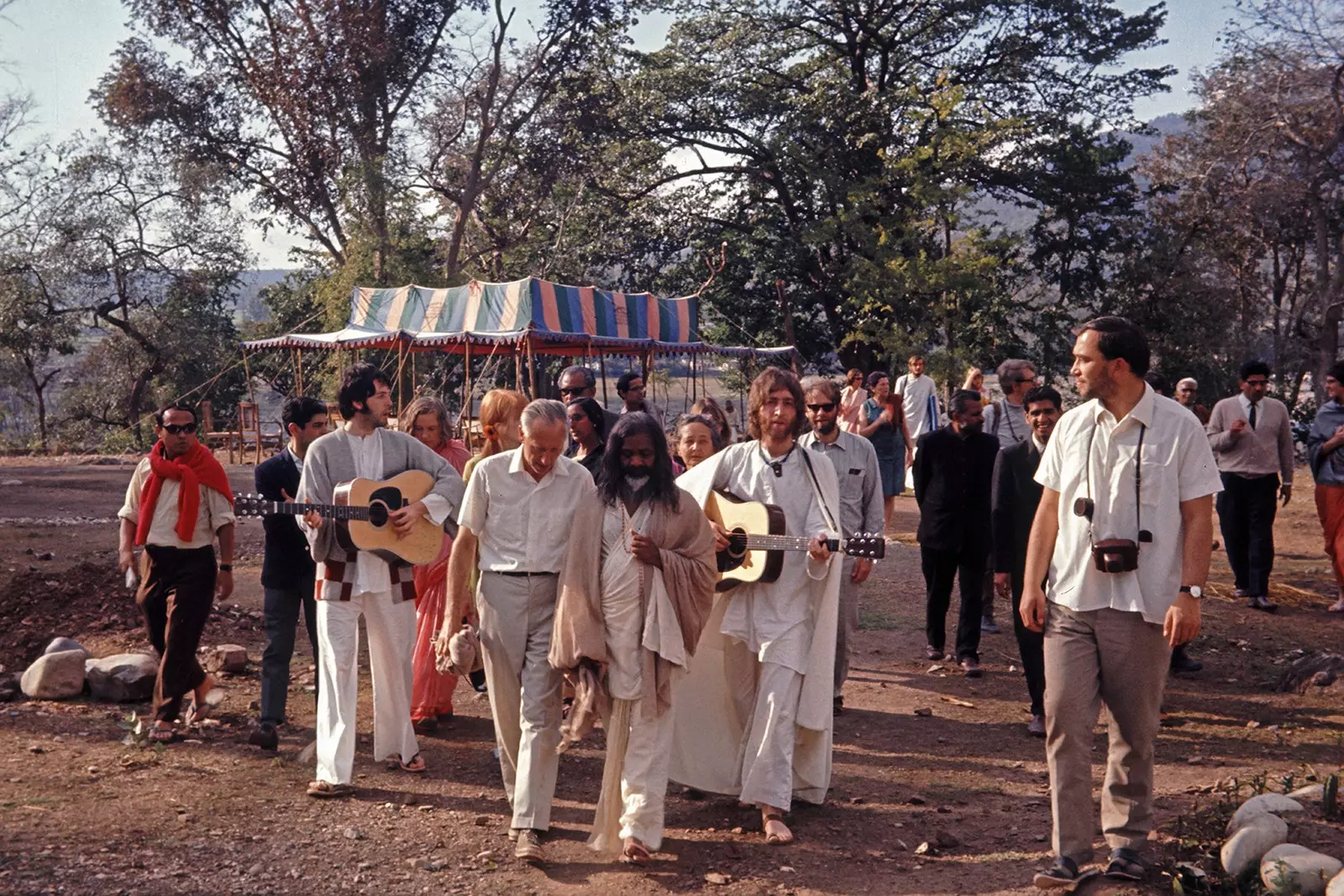
From the ashram.
They left abruptly and defined the experience as a mistake. But the harmony and creativity that they had achieved in their Indian experience was not repeated. They recorded the White Album and it was the beginning of the end for The Beatles. However, individually each in their own way maintained Indian spirituality and influence.
For India and a large part of its cultural and intellectual society (many voices from cinema, music… appear in the documentary), the influence of the Beatles also changed them forever. And put them on the map in another way. If the country was already an incipient favorite destination for hippies, after the passage of those from Liverpool, became a trendy destination. Also in that, they had a lot to do. And the ashram, although abandoned today, is a very popular tourist destination to relive that 1968 of love, peace and music.
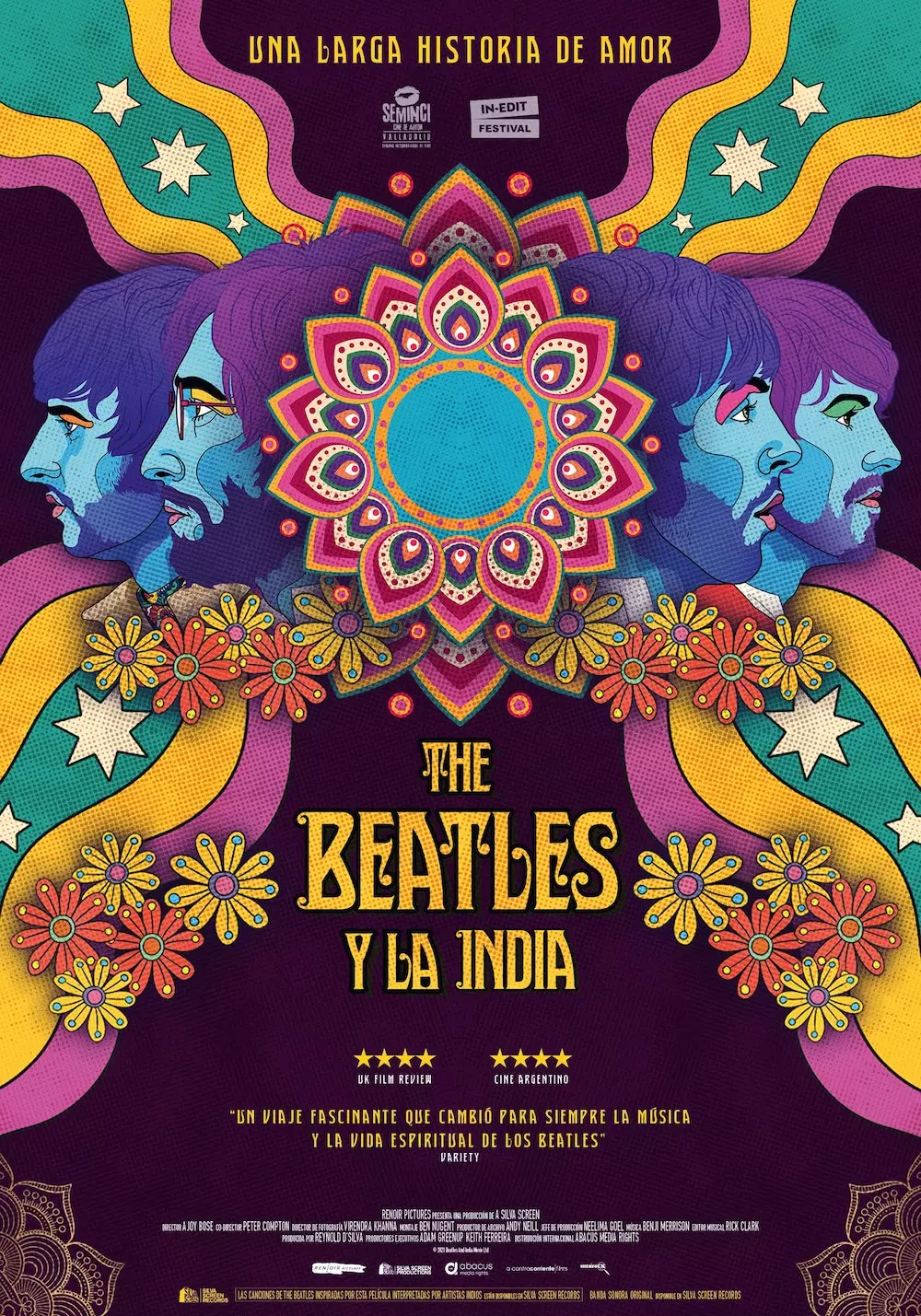
'The Beatles and India' in theaters April 1.
